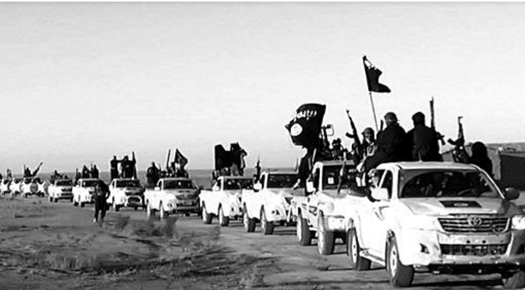
Islamic State has sanctioned the harvesting of human organs in an earlier undisclosed ruling by the terrorist group’s scholars, thus raising concerns that the jihadists may be trafficking in body parts to raise money. The ruling, evident in a document dated January 31, 2015, states that taking organs from a living captive to save the life of a Muslim is permissible, even if the procedure costs the captive his or her own life.
Here is the United State’s translation of the same document
While the authenticity of the document could not be confirmed independently, United States officials said that it was discovered from a trove of data and other information that was obtained by American Special Forces during a raid in Syria.
“The apostate's life and organs don't have to be respected and may be taken with impunity,” reads the document, which is in the form of a fatwa, or religious ruling, from the Islamic State’s Research and Fatwa Committee. “Organs that end the captive's life if removed: the removal of that type is also not prohibited.”
Even though the document does not provide any evidence about Islamic State actually engaging in the harvesting and trafficking of organs, it does offer religious sanction to such measures under the terrorist group’s conservative interpretation of Islam, which most practicing Muslims reject.
Earlier, Iraq had accused Islamic State of harvesting as well as trafficking human organs for profit. The document also refrains from explaining what it means by the word apostate, though Islamic State has been known to imprison and execute non-Muslims –including Christians, Shiites and Sunnis– who do not abide by the terrorist group’s extremist views.
United States officials said the records that were seized by Special Forces has given the American administration a deep understanding of how exactly Islamic State organizes terror attacks, raises funds and codifies laws for its followers.
Mohamed Ali Alhakim, Iraq’s ambassador to the United Nations, told the media that the seized documents should be inspected by the United Nations Security Council, as there is enough evidence suggesting Islamic State has been trafficking in organs to raise money.
Brett McGurk, Special Presidential Envoy for the Global Coalition to Counter ISIL (for American President Barack Obama), said that the raid in Syria –which led to the death of Abu Sayyaf, Islamic State’s topmost financial official, and the capture of his wife– allowed the United States to acquire seven terabytes of data distributed across thumb drives, computer hard drives, paper files, CDs and DVDs.
While United States officials have described Sayyaf’s raid and some of the documents that were seized during the mission, none of the original documents have been released as yet. The only document to have been released was the one elucidating Islamic State’s trafficking of antiquities, which was made public at an event in New York’s Metropolitan Museum of Art.
Reportedly, the American administration has shared select documents from this raid with its allies in an effort to help them understand the way in which Islamic State functions. The bunch of documents, titled ‘Lessons Learned From the Abu Sayyaf Raid’, reveals how Islamic State has offered a legal justification for a range of practices to its followers.
For instance, Fatwa Number 64, dated January 29, 2015, explains rules for rape, clarifying when Islamic State militants can and cannot have sexual intercourse with female slaves. Similarly, Fatwa Number 68 justifies the practice of harvesting organs by drawing an analogy to cannibalism in dire circumstances.
“A group of Islamic scholars have permitted, if necessary, one to kill the apostate in order to eat his flesh, which is part of benefiting from his body,” it reads.
McGurk said that Islamic State's Research and Fatwa Committee reports directly to the terrorist group's leader, Abu Bakr al-Baghdadi.
The ruling on organ harvesting refers to Islamic texts, laws and principles that the document says support “the notion that transplanting healthy organs into a Muslim person’s body in order to save the latter's life, or replace a damaged organ with it, is permissible.”
McGurk said, however, that United States officials have not been able to ascertain whether Islamic State has already followed through with this particular fatwa.
“The document provides a religious justification for harnessing the organs of what they call infidels,” he said.
In February last year, Alhakim had insisted that the United Nations Security Council investigates the death of 12 doctors in Mosul, which has been captured by Islamic State. According to Alhakim, the doctors were killed after they refused to operate on ‘apostates’ and remove their organs.
Photo Credits: Jihad Watch
